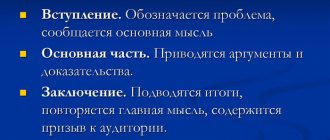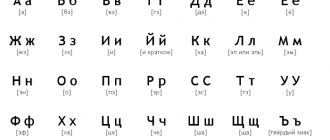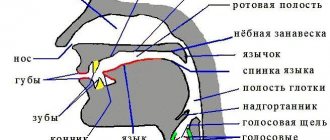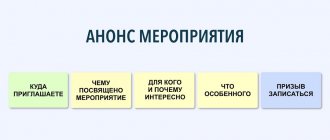Despite all his evil genius, Hitler’s oratorical talent is obvious: not only the masses who were far from politics and history, but also people well educated in these areas, succumbed to his influence. This can be explained by the Fuhrer’s ability to capture the type of thinking of his listeners: Hitler’s speech was always tailored to their perceptions and ideas. Analysts identify several features inherent in the politician’s speeches, which were decisive in his ability to capture the attention of the audience.
How did Hitler's oratorical talent manifest itself?
From his youth, Hitler was different from the people around him, including the fellow soldiers with whom he participated in the First World War. The future Fuhrer spent a lot of time reading and studying history. In addition, Hitler listened to thematic lectures at universities and was an activist at rallies.
At the same time, during public demonstrations in the squares, the politician’s brilliant talent was revealed: he attracted the public’s attention well with his statements. Hitler knew almost all known German dialects and copied them with ease, which gave him the opportunity to seem like a fellow countryman to the locals. This allowed him to gain the trust and support of the public and endeared the people to him as a whole.
People were also attracted to the Fuhrer by his undisguised willpower: the desire for leadership was manifested in his speeches so clearly that the politician’s character traits had a fascinating effect on individual people. It was the ability to influence the masses that allowed Hitler to build a political career and influence the course of historical events of the twentieth century.
Beginning of World War II
The Polish campaign of the Wehrmacht was a military operation, as a result of which the territory of Poland was completely occupied, and parts of it were annexed by the “Third Reich” and the USSR. In response to Hitler's aggression, Great Britain and France declared war on Germany, marking the beginning of World War II. Its date began to be considered September 1, 1939 - the day of the invasion of Poland.
Stalin and Hitler: how their friendship began and ended
The influence of the Fuhrer's oratorical skills on the subconscious of people
The Fuhrer himself sometimes called himself “the greatest actor in Europe.” The politician’s personal qualities were developed so strongly that all those who listened to him did not think rationally about his words, obeying Hitler’s view, as well as his oratorical skill. Hitler's speech skills were excellent: he could make almost any person believe in his words and do what he needed (this played an important role in the outbreak of World War II).
As a speaker, the politician always carefully thought through and prepared his speeches (it took about 5 hours to prepare one speech), regardless of the width of the audience - it could be either small or include multimillion-dollar public meetings at rallies.
The peculiarity of Hitler's speeches also lies in the fact that he professionally managed his feelings in front of the public. The Fuhrer knew well the psychological aspect of persuading people, learned all the necessary gestures and postures - the credibility of his speeches and their persuasiveness were built on this.
The politician constantly improved his skills, and when speaking, he described the main thoughts in such a way that the audience had no doubt about their correctness.
Hitler's goal was not so much to make the public believe himself, but to create the effect of a joyful shock. Given that many people felt disenfranchised by society and government, allowing them to feel less alienated was to give them hope, to delight them, to make them feel not alone but part of a single whole - the nation.
The Fuhrer explained the effectiveness of such a belief by the fact that the feeling of unity of people gives them the opportunity to realize their own invincibility and security. In a state of joy, a person becomes more receptive to outside judgments, which the politician used during his speeches.
Adolf Hitler’s speech was often scheduled for the dark or in a dimly lit room. This is explained by the psychology of the people. In dark rooms or in the evenings in squares, the Fuhrer’s words were perceived more accurately and fully.
Joint parade in Brest
On September 14, 1939, the German 19th Motorized Corps attacked and occupied Brest-on-Bug (then a Polish city). On September 22, Brest was handed over to the 29th Tank Brigade of the Red Army during an impromptu parade. The parade is being accepted: in the center - General Guderian (commander of the 19th motorized corps), on the right - commander of the 29th light tank brigade of the Red Army, brigade commander Semyon Krivoshein.
Stalin and Hitler: how their friendship began and ended
Elements of acting in Hitler's oratory
The Fuhrer's election speech usually contained several stages, one after another.
- In the first minutes of his speech, Hitler adhered to a jerky style of narration: in this way he selected the manner of conducting the monologue so that it would be understandable and close to the audience.
- After some time, the tempo of speech increased, becoming louder and more emotional. The audience repeated almost every move of Hitler in waves, as they were completely under his influence.
- The climax of the speech became the most emotionally charged - the Fuhrer began to get angry, waving his arms, as if fighting off enemies. The ideas expressed became more cruel, ideas of violence appeared in them. Often, after Hitler’s speeches, listeners could not come to their senses for a long time, remaining in an unconscious, excited state. Only towards the end of the war, Hitler’s last speech, like some previous ones, no longer had such an effect, since the population and the majority of those around him lost faith in the Fuhrer and his ideas.
Signing
Joachim von Ribbentrop (left), Joseph Stalin (second from left) and Vyacheslav Molotov (signing, sitting on the right). On the part of the USSR, the treaty was signed by the People's Commissar for Foreign Affairs Molotov, on the part of Germany - by its Minister of Foreign Affairs Ribbentrop. The treaty is often called the "Molotov-Ribbentrop Pact".
Stalin and Hitler: how their friendship began and ended
Details of the image of a politician as a speaker
Features of the appearance of a person belonging to a certain occupation are important in creating his style and image. In order not to reduce his authority before the public, Hitler hid his origins, relatives and family, and any attempts to find out were harshly suppressed. The politician believed that this could negatively affect his reputation and ability to persuade.
Otherwise, the speaker did not use external, eye-catching attributes during his speeches - people were easily influenced by him, so the use of additional appearance details was not necessary.
Partition of Poland
German troops defeated the Polish armed forces. On September 17, Soviet troops entered the territory of Poland - as officially reported, with the aim of annexing Western Belarus and Western Ukraine to the USSR. The territory of Poland was divided between Germany and the Soviet Union in accordance with the secret protocols to the non-aggression and friendship and border treaties, as well as Lithuania and Slovakia.
Stalin and Hitler: how their friendship began and ended
Hitler's perception of the audience, construction of speech
Psychologists are of the opinion that Hitler's communication with the public was important to him on a psychological level. The politician admitted that in his mind the people become a woman who can be mastered during a speech. Therefore, assumptions have been made about the connection between the climactic moment of speech and human sexual reflexes.
Hitler's acting took a lot of energy from him, since he always gave his full attention to his speeches. According to the recollections of people close to him, the politician was sometimes unable to even walk after his speech.
The Fuhrer never referred to the written theses and recorded speeches. At the same time, he also cannot be called a speaker who built the course of his speech through improvisation.
The style of the narrative and its emotionality depended to a greater extent not on what he was talking about, but on what state of mind he was experiencing. The audience was directly connected with him - the more emotional and brighter Hitler’s well-being became, the stronger this feeling was transmitted to the audience.
People who have attended the politician’s addresses to the public note that in the initial stages he does not move on to the main part of the narrative for a long time, returning several times to the same primary statements. The Fuhrer did this in order to provoke a reaction from the public, making them feel pleasure from what was said.
But later he could get so carried away that he did not reveal all the initially stated topics: at the climax of the speech, Adolf Hitler’s speech usually broke off due to excess emotions.
results
On September 1, 1939, Germany launched an invasion of Poland, and on September 17, 1939, Soviet troops entered Polish territory. The territorial division of the country was completed on September 28, 1939 with the signing of a friendship and border treaty between the Soviet Union and Germany. Later, the Baltic countries, Bessarabia and Northern Bukovina, as well as part of Finland, were annexed to the USSR.
Stalin and Hitler: how their friendship began and ended
The main features of a politician’s speech
Several features can be identified that are characteristic of almost every speech of the Fuhrer. It was these subtleties that allowed him to become a great speaker with a large number of listeners and followers. Among the features of speech are:
- expressiveness of the speech (the Fuhrer’s addresses were very expressive and emotional - the politician believed that on an emotional level people would quickly make the decision he needed, and their internal logic would confirm that this choice was reasonable and correct);
- pauses in speech (long pauses helped to achieve the effect of anticipation - people couldn’t wait to continue listening to him, the main thoughts became more weighty and visually important);
- heterogeneity of address (at first the Fuhrer spoke calmly, but closer to the climactic thought he began to shout);
- written theses (the politician prepared for each appearance in front of the public, had a speech plan in front of him, but never reproduced the speech by sight reading);
- addressing the problems of the audience (often the politician appealed to the sense of pride and dignity of the people, calling on them to change the situation for the better on their own);
- sense of mood (the Fuhrer well understood the mood of almost any person, which helped him gain support from rich people who helped him move up the political ladder. This component of the speech received particular significance when Hitler’s last speech was made: at that time his authority was undermined , and correctly interpreting the new mood of the population was especially important for the politician);
- popularization of personality (Hitler published a book he wrote, changing and correcting it many times in order to create a correct reflection of himself and the image necessary for a given situation, which was supposed to pass into the popular consciousness);
- thinking (every speech of Adolf Hitler became a product not so much of study and reading, but of the politician’s thought processes, which were additionally transformed by the ideas he heard);
- development of speech skills (at an early age, when the politician was a soldier in the First World War, he did not have any special oratorical skills; the agitator courses he attended after the end of hostilities were able to help him learn to speak; at first, the future Fuhrer often spoke in bars where people gathered large crowds of people discussing political issues).
The success of Hitler's speeches was based not only on his emotional hypnotizing effect on the audience. An important aspect of the speeches was that the politician showed strong willpower and absolute self-confidence, which allowed the public to feel that he was right.
All speeches were built on the principle of gradation - at first his speech was calm, and then emotional, which made it possible to achieve success with the audience. The election speech captivated the public, people believed what the politician said, and therefore the Fuhrer could achieve any of his goals.
The politician’s speeches influenced not only the broad masses of the population, but also skeptics and highly educated people versed in politics - they, like the Germans, followed the Fuhrer’s thought without critical evaluation. Although most of the ideas that Hitler conveyed to the people were monstrous, it must be given credit that he was one of the most brilliant speakers of the 20th century.
Symbol city
The city of Brest became part of the USSR as the center of the newly formed Brest region of the Belarusian SSR. The Soviet-German demarcation line ran along the Western Bug River. And it was this city that on June 22, 1941, was one of the first to be attacked by German troops. The defense of the Brest Fortress became a symbol of perseverance, courage and military valor. The photo shows a parade during the transfer of the city to the Red Army in 1939.









